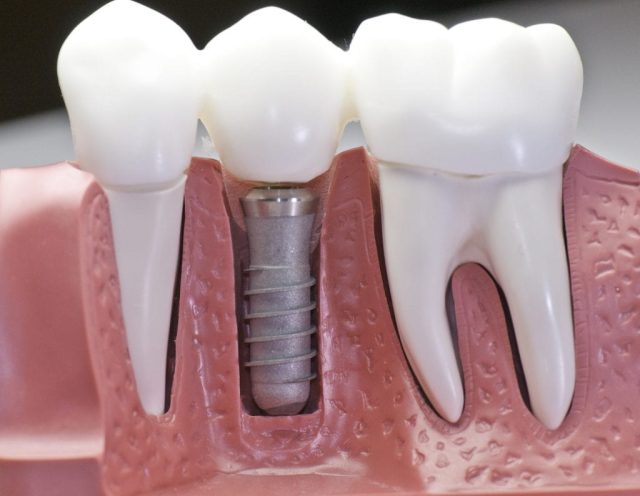Missing teeth can be a source of embarrassment and can make everyday tasks like eating and speaking difficult. But with advancements in modern dentistry, there are now many options for replacing missing teeth, including dental implants. At Dental Care Centre, we believe that every patient deserves a healthy, beautiful smile and that’s why we are excited to introduce our patients to the world of dental implants. In this blog, we will discuss what dental implants are, the benefits they offer, and how they can be used to replace missing teeth. We will also share information about the implant procedure, recovery time, and care, so that you can make an informed decision about whether dental implants are right for you. Let’s dive in!

What are Dental Implants?
Dental implants are small, artificial tooth roots that are surgically placed into the jawbone. They provide a stable foundation for the placement of a replacement tooth, bridge, or denture. They are typically made of titanium, a biocompatible metal that can fuse with the bone over time, this process is called osseointegration.
Dental implant is a two-step process, first step is the placement of the implant in the jawbone, this is done under local anesthesia or IV sedation and it can take several months for the implant to fuse with the bone. The second step is the placement of the abutment, a small connector post that hold the replacement tooth, bridge or denture in place. This step is performed once the implant has fully healed.
What procedure takes place?
The procedure for placing dental implants typically involves several steps, including:
- Initial consultation: During this appointment, the oral surgeon or periodontist will evaluate your oral health and determine if you are a good candidate for dental implants. X-rays and other imaging may be taken to help plan the placement of the implants.
- Preparing the jawbone: If the jawbone is not thick or strong enough to support the implant, a bone graft may be needed. This procedure involves adding bone material to the jaw to create a stable foundation for the implant.
- Implant placement: The implant is placed into the jawbone through a small incision in the gums. The implant is then covered with a temporary healing abutment and left to heal for several months.
- Abutment placement: Once the implant has fully healed and fused with the bone, a small connector post, called an abutment, is placed into the implant.
- Placement of the replacement tooth, bridge, or denture: The replacement tooth, bridge, or denture is then attached to the abutment. This step will be done once the implant is stable and the abutment is in place, it typically takes a few weeks.
- Follow-up appointments: You’ll need to visit your dentist or surgeon to check on the healing progress and to ensure everything is working properly. Regular hygiene appointments and good oral hygiene habits are essential for maintaining the health and longevity of your dental implants.
What are the benefits?
Dental implants offer several benefits over other methods of replacing missing teeth, including:
- Natural appearance: Dental implants look and function just like natural teeth, so you can eat, speak, and smile with confidence.
- Permanence: Unlike dentures, dental implants are permanent and do not need to be removed for cleaning or at night.
- Durability: With proper care and maintenance, dental implants can last for many years, even a lifetime.
- Increased comfort: Dental implants are anchored into the jawbone and do not move or shift like dentures can. This can make eating and speaking more comfortable.
- Improved oral health: Dental implants do not rely on surrounding teeth for support, so they do not damage healthy teeth. And they also help to maintain the jaw bone volume, preventing bone loss that can occur after tooth loss.
- Versatility: Dental implants can be used to replace a single missing tooth, multiple missing teeth, or to secure loose-fitting dentures.
- Better quality of life: Dental implants can improve your self-esteem, self-confidence and overall quality of life.
Overall, dental implants are a great option for those with missing teeth or ill-fitting dentures who want a permanent and effective solution.
At Dental Care Centre, we are proud to offer the latest in dental implant technology to our patients. Our team of highly trained and experienced dental professionals are dedicated to providing personalised and comprehensive care to ensure the best possible outcome for each individual patient.
If you are missing one or more teeth and are looking for a permanent and effective solution, dental implants may be the perfect choice for you. To learn more about dental implants and to schedule your consultation, Book Online or contact us at (02) 8730 8830.
